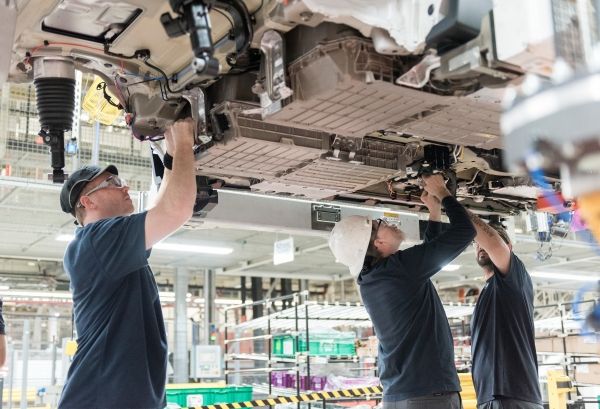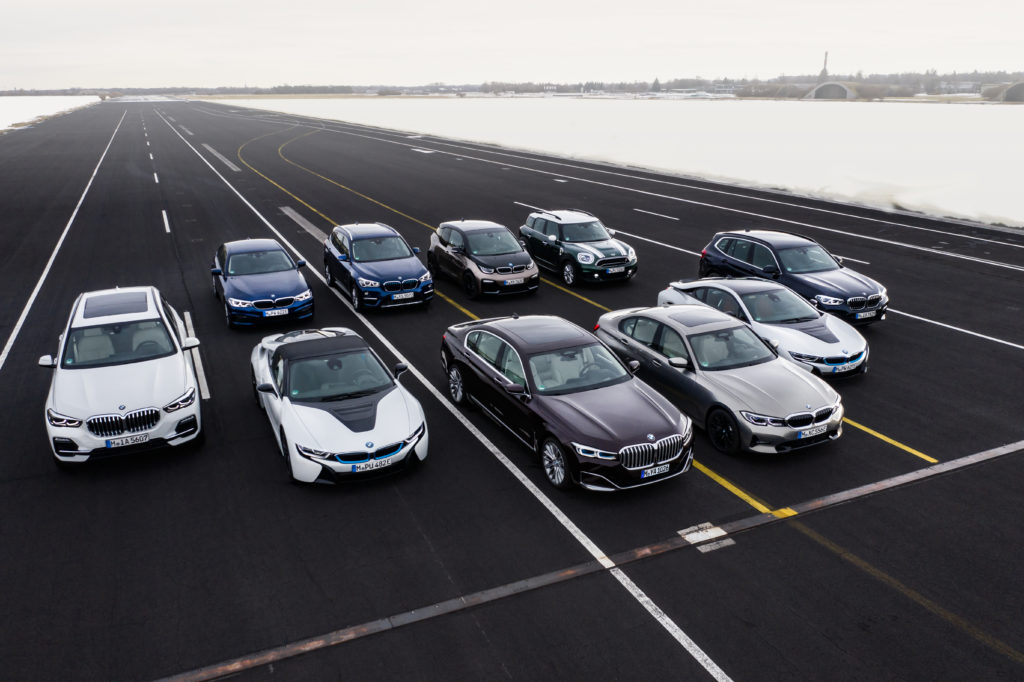
Readying itself for a slew of electrified vehicles, BMW Group announced this week an investment of approximately $10 million to double battery manufacturing capacity at the company’s factory in Spartanburg, South Carolina.
Spartanburg produces the company’s fourth-generation batteries, which provide improved energy density over prior generations. Maximizing energy density is beneficial because higher density provides more electric range in the same size battery.
For example, the battery in the 2019 plug-in hybrid model of the BMW 5 Series sedan is the same physical size as the prior version, but has a gross energy content of 12.0 kWh, up from 9.2 kWh. The benefit is 30 percent more electric miles while taking up no additional space in the vehicle.
Already a leader in vehicle electrification, up next for the U.S. market is the BMW X5 xDrive45e plug-in (up to 50 miles on electric power), which is expected to start production next month and is pictured above. The X3 xDrive30e plug-in (about 30 all-electric miles) is expected by the end of 2019, with a purely electric version due in 2020.
BMW plans to have 25 electrified models on the market by 2023; more than half will be fully electric.
For more information about electric vehicles and electric vehicle charging, please contact me. I also invite you to subscribe to receive future posts via email, view my other posts, and follow me on Twitter.

